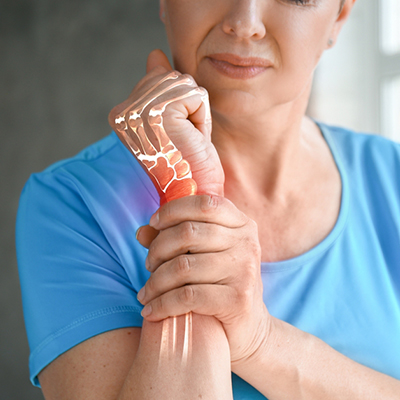Joint Diseases
Joint pains and disorders are common health issues affecting millions of people worldwide. Joint pains can be acute or chronic, and can affect any part of the body, including the hands, feet, knees, hips, and spine. There are various causes of joint disorders, including:
- Wear and tear: As we age, the joints naturally undergo wear and tear, leading to degenerative joint disease, also known as osteoarthritis.
- Inflammatory arthritis: Conditions such as rheumatoid arthritis, psoriatic arthritis, and lupus cause inflammation in the joints, leading to pain and stiffness.
- Trauma: Injuries or trauma to the joints can cause joint pain and stiffness.
- Gout: A type of inflammatory arthritis that occurs when uric acid builds up in the joints.
- Infections: Bacterial or viral infections can cause joint pain and inflammation.
- Overuse or repetitive strain: Repeatedly using joints in a way that causes strain can lead to joint pain and injury.
- Genetic predisposition: Some people may be more prone to developing joint disorders due to their genetic makeup.

Symptoms:
- Pain and stiffness
- Swelling and redness
- Warmth and tenderness
- Limited range of motion
- Cracking or popping sounds
Risk Factors:
- Age: Joints naturally wear out with age
- Family history: Having a family history of joint disorders
- Obesity: Excess weight can put additional strain on joints
- Physical activity: Repetitive strain or overuse can lead to joint pain and injury
- Hormonal changes: Hormonal fluctuations during menopause or pregnancy can lead to joint pain and stiffness.
It's essential to consult with a healthcare provider if you're experiencing persistent joint pain or stiffness, as early diagnosis and treatment can help alleviate symptoms and prevent further damage.
Around the clock, around your needs.
0863 - 2450666

